Hollow Fibre Duvet made in Britain VS Hollow Fibre Duvet made in China
In the context of a global economic downturn, consumers are increasingly seeking affordable yet high-quality products. Hollow fibre duvets, known for their lightweight warmth and cost-effectiveness, have become a popular choice, especially in colder regions like Europe. However, the production origins of these duvets—whether made in Britain or China—can significantly impact their quality, durability, and overall value. As a manufacturer exporting to the UK market, we have conducted a detailed comparison of Microfiber Hollow Fibre Duvets made in Britain and Microfiber Hollow Fibre Duvets made in China, focusing on material quality, stitching patterns, edge workmanship, packaging, and pricing.
1. Material Quality
Both British and Chinese duvets use brushed microfiber fabric and are filled with 100% virgin 3D hollow fibre. In terms of material quality, there is little difference—both offer a soft, comfortable feel. This similarity ensures that consumers receive a product that meets basic expectations for comfort and warmth, regardless of its origin.
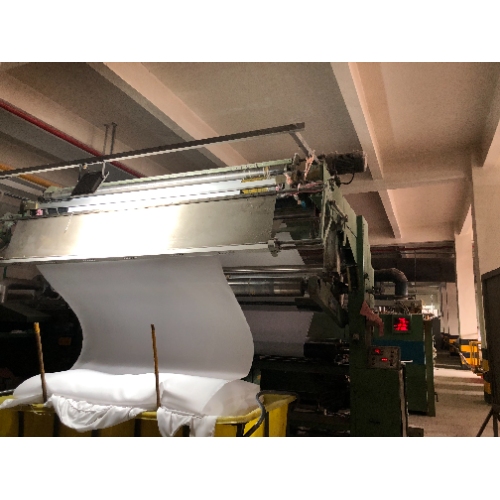
2. Stitching Patterns
The stitching patterns, however, reveal a stark contrast. British-made duvets typically feature line stitching, while Chinese-made duvets use 40x40cm box stitching. The box stitching method is superior for several reasons:
Aesthetic Appeal: Box stitching creates a more polished and visually appealing design.
Functionality: It effectively locks the filling in place, ensuring even distribution and enhanced durability.
Edge-to-Edge Stitching: Chinese duvets are stitched from edge to edge, with the stitching thread wrapped into the edge to secure it. This prevents thread loosening, a common issue with British duvets, where stitching often begins to unravel after just one use.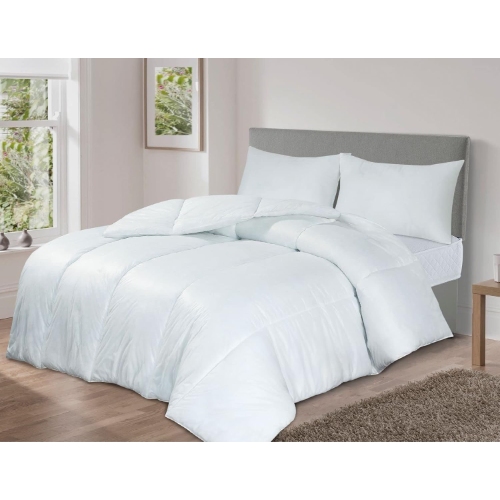
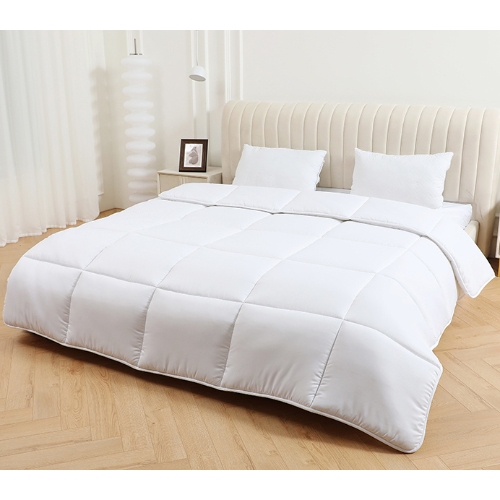
3. Edge Workmanship
Edge workmanship is another area where Chinese duvets outperform their British counterparts. British duvets typically use a stitched edge, which is prone to fraying and unraveling. Many Amazon UK reviews highlight complaints about edges coming apart within weeks of use, or even upon delivery, exposing the filling.
In contrast, Chinese duvets feature a binded edge (also known as a wrapped edge), which is more durable and resistant to wear and tear. This superior edge workmanship significantly reduces return rates and enhances customer satisfaction.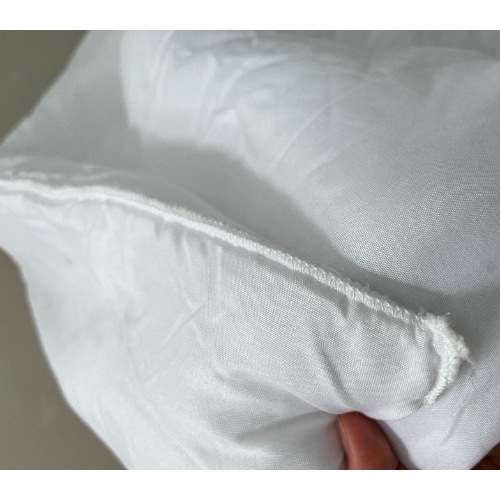
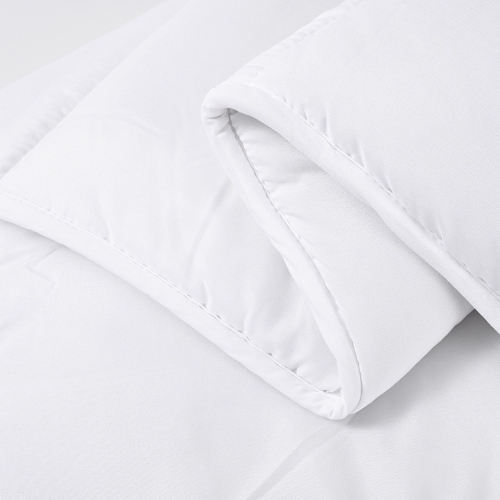
4. Packaging
Packaging plays a crucial role in logistics, especially for bulky items like duvets. Chinese manufacturers use vacuum roll packaging, which compresses the duvet into a compact roll. This method is highly beneficial for e-commerce businesses, as it reduces shipping volume, lowers sea freight costs, and minimizes delivery expenses.
British-made duvets, on the other hand, are often hand-packed, resulting in larger packaging sizes. While this eliminates sea freight costs for local sales, it can be less efficient for international shipping or storage.
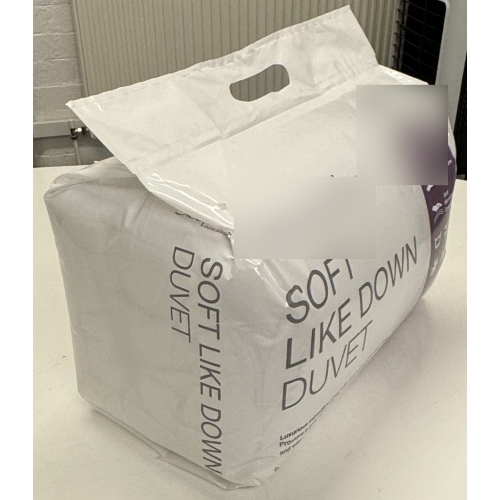
This is a packaging for quilt made in Britain.
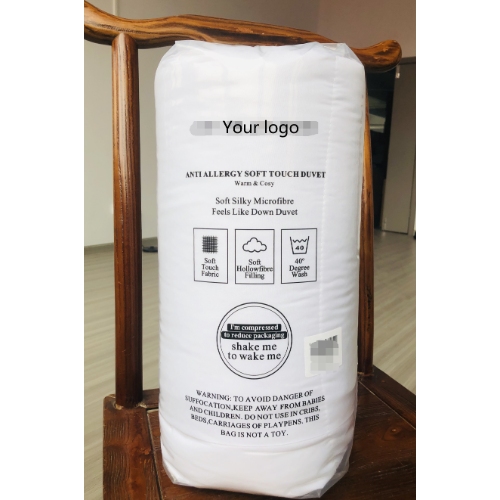
This is vacuum packed by machine from China.
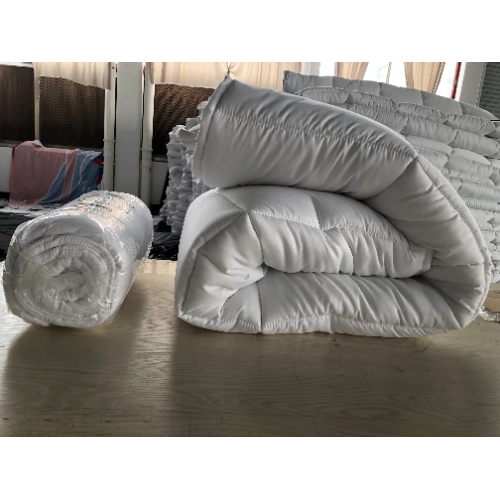
This is a 16.5 tog double size quilt, a compare before and after vacuum packaging.
5. Pricing
When it comes to pricing, Chinese duvets have a slight disadvantage due to 2% import tariffs and shipping costs when exported to the UK. However, if British manufacturers were to produce duvets of the same quality as Chinese ones, the cost would be significantly higher due to higher labor and material expenses.
Despite the additional costs, Chinese duvets offer better value for money due to their superior craftsmanship and durability. This is evident in the UK market, where many Amazon sellers offering British-made duvets face high return rates and negative reviews. In contrast, our clients who switched to Chinese duvets have reported fewer complaints and higher profitability.
It is common to see bad reviews like below for the line stitching quilts made in Britain.
While our box stitching quilt do not have this kind of problem, as it is box stitched and edge binded.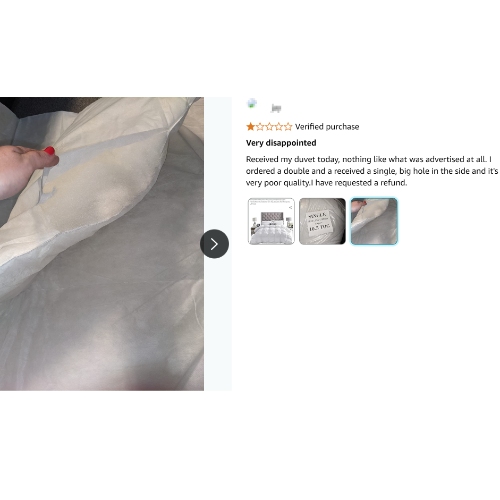
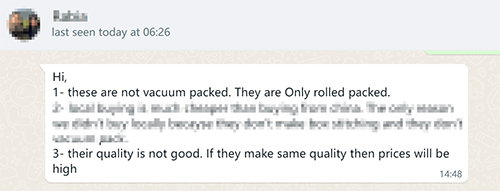
This is what our customer said about quilt made in Britain.
 How to Choose the Right Ruched Faux Fur Throw Blanket for Your Startup
How to Choose the Right Ruched Faux Fur Throw Blanket for Your Startup
 Happy New Year! We're Back in Business!
Happy New Year! We're Back in Business!
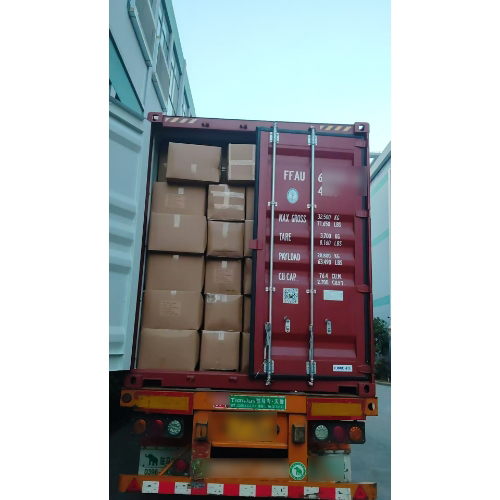 First Container Loading after CNY
First Container Loading after CNY

